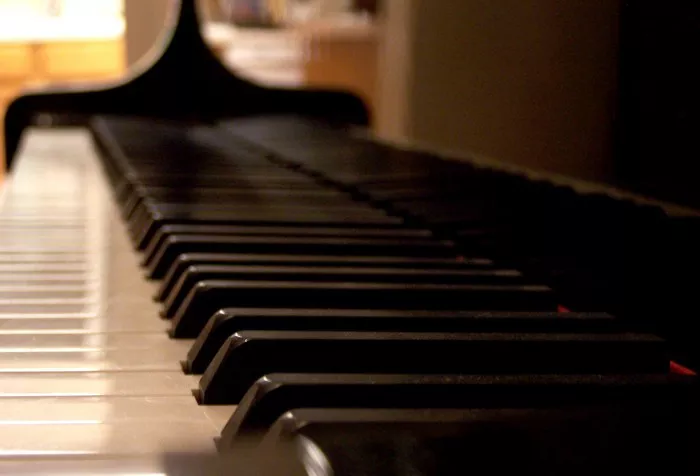Pianos have long been treasured as instruments of artistic expression and musical excellence. Among their components, ivory keys have held a special allure due to their historical significance, aesthetic appeal, and unique tactile qualities. The Value of Ivory Piano Keys: Exploring Rarity, History, and Ethics delves into the intricate world of ivory piano keys, examining their worth from cultural, economic, and ethical perspectives.
The Origin of the Ivory Piano
The origin of the ivory piano can be traced back to the early days of piano craftsmanship. In the 18th and 19th centuries, ivory was prized for its smooth texture and ability to transmit subtle nuances of touch. Craftsmen used ivory to create piano keys that enhanced the tactile experience of playing, allowing musicians to express themselves with precision. These keys symbolized luxury and elegance, becoming synonymous with the finest pianos. However, as concerns about animal conservation and the ethical implications of ivory trade emerged, the use of ivory in piano manufacturing has waned, marking a shift towards sustainable and cruelty-free alternatives.
See Also: [Reveal] Popular Songs Enriched with the Elegance of the Piano
The Historical Significance of Ivory Keys
For centuries, ivory keys were synonymous with piano craftsmanship, symbolizing luxury, elegance, and craftsmanship. The use of ivory for piano keys dates back to the early days of piano manufacturing. Ivory’s smooth texture and ability to transmit subtle nuances of touch made it the material of choice for crafting piano keys. Musicians and piano enthusiasts were captivated by the way ivory keys responded to their touch, enhancing the overall playing experience.
The process of making an ivory piano
Creating an ivory piano involved intricate craftsmanship. Skilled artisans meticulously shaped and polished ivory tusks, sourced from elephants, into piano keys. The ivory’s smoothness enabled musicians to play with exquisite touch and responsiveness. Craftsmen attached the keys to the piano’s wooden frame, ensuring precise alignment and balance. The result was a luxurious instrument with unparalleled aesthetic and tactile qualities. However, due to ethical concerns and wildlife conservation efforts, the use of ivory in piano production has largely ceased. Modern pianos now utilize synthetic materials and sustainable alternatives, preserving the piano’s essence while promoting ethical practices.
Are ivory pianos rare?
The value of ivory piano keys is closely tied to their rarity. Ivory, derived from the tusks of elephants and other animals, has been subject to stringent regulations due to concerns about animal conservation and the illegal ivory trade. As a result, the use of ivory in piano manufacturing has significantly diminished over the years.
Pianos with authentic ivory keys have become increasingly scarce, driving up their economic value. Antique pianos from the 18th and 19th centuries that feature original ivory keys are particularly sought after by collectors and enthusiasts. The intricate craftsmanship, historical relevance, and the scarcity of such instruments contribute to their high market prices.
How much is an ivory piano?
The value of an ivory piano varies widely based on factors like age, brand, condition, and rarity. Antique pianos with original ivory keys from the 18th and 19th centuries can command substantial prices, often ranging from tens of thousands to hundreds of thousands of dollars, especially if they are by renowned manufacturers or have historical significance. However, ethical considerations, international regulations against ivory trade, and growing awareness of conservation have significantly impacted the market. Many buyers now seek pianos with ethical key materials, such as synthetic alternatives or sustainable bone. The market’s focus has shifted towards preserving history while adhering to responsible practices.
The Ethical Considerations
While the allure of ivory piano keys is undeniable, the ethical concerns surrounding their use cannot be ignored. The ivory trade has had devastating effects on elephant populations, leading to international bans and regulations to protect these endangered animals. Consequently, the use of ivory from newly sourced materials is widely regarded as unethical and illegal in many parts of the world.
Preservation and Conservation Efforts
In a world increasingly conscious of environmental impact and wildlife conservation, preserving the legacy of ivory piano keys comes with challenges. Many owners of antique pianos are choosing to restore their instruments while respecting ethical considerations. Piano restoration experts can guide owners through the process of replacing ivory keys with suitable alternatives, ensuring that the piano’s historical value is preserved without contributing to the demand for new ivory.
Conclusion
The value of ivory piano keys is a multi-faceted concept that encompasses historical, cultural, economic, and ethical dimensions. These keys have been emblematic of craftsmanship and luxury, enhancing the playing experience for generations of musicians. However, the decline in ivory use is a reflection of our evolving understanding of conservation and ethical practices.
As the world moves towards more sustainable and responsible choices, piano enthusiasts, collectors, and musicians must navigate the delicate balance between preserving history and embracing ethical considerations. The allure of ivory piano keys will endure, but their true value lies not just in their economic worth, but in the stories they tell, the artistry they represent, and the respect they show for the world’s natural treasures.

